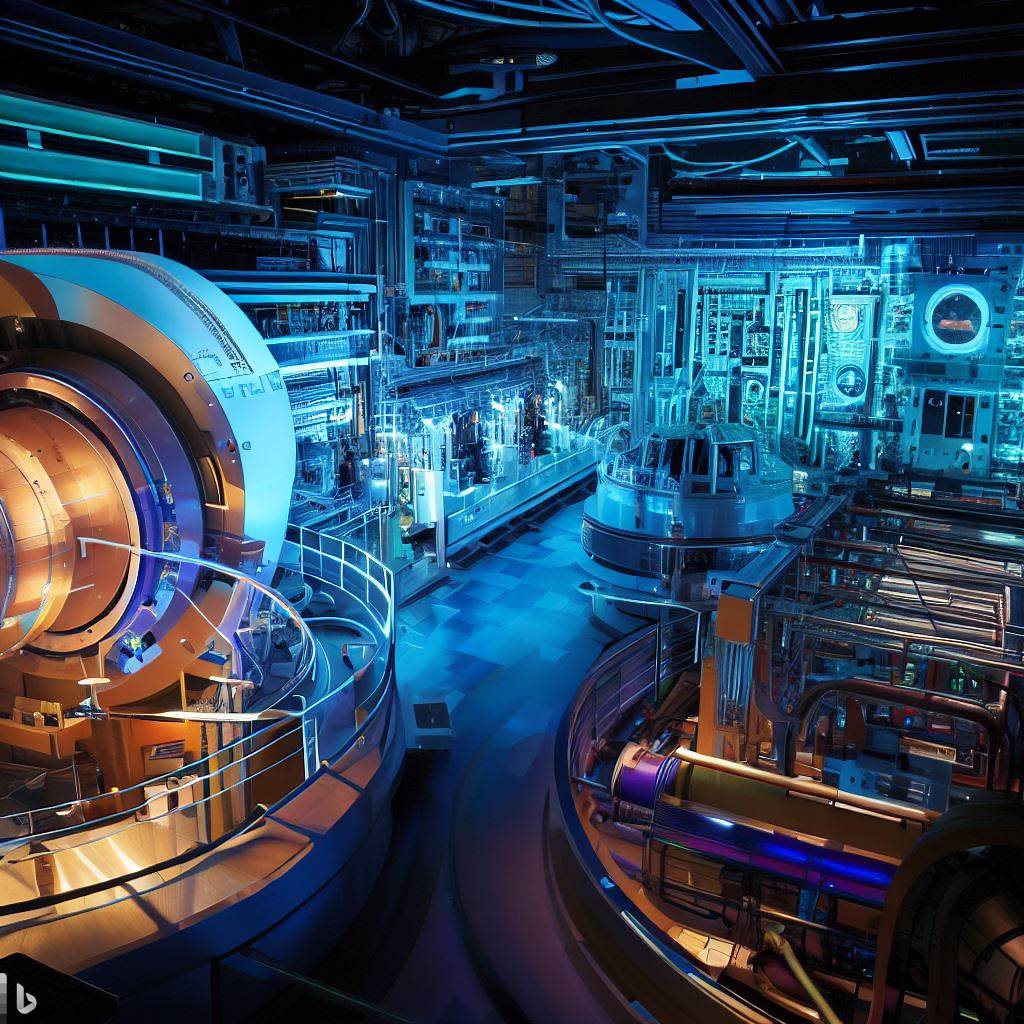In the pursuit of understanding the fundamental building blocks of our universe, the European Organization for Nuclear Research (CERN) is set to conduct groundbreaking experiments on April 8, 2024. The Large Hadron Collider (LHC), the world’s largest and most powerful particle accelerator, will smash protons together to search for invisible particles secretly powering our universe. This event coincides with a total solar eclipse, which has historically been associated with significant scientific discoveries and events. This article aims to explore the relationship between CERN’s experiments, the April 8, 2024 eclipse, and other significant events occurring around the world.
CERN’s Large Hadron Collider and the Search for Invisible Particles: The Large Hadron Collider, located at CERN’s headquarters in Switzerland, is a 27-kilometer ring of superconducting magnets designed to accelerate protons to near the speed of light. When these protons collide, they release massive amounts of energy, which can be used to create new particles that may provide insights into the fundamental forces and particles that make up our universe.
One of the primary goals of the April 8, 2024 experiment is to search for invisible particles, such as dark matter and dark energy, which are believed to constitute approximately 95% of the universe. These particles are not directly observable, but their effects can be detected through their gravitational influence on visible matter. By studying the properties of these particles, scientists hope to develop a more complete understanding of the universe and its origins.
The April 8, 2024 Eclipse and Its Significance: A total solar eclipse occurs when the Moon passes between the Sun and Earth, temporarily blocking the Sun’s light and casting a shadow on the Earth’s surface. This rare celestial event has historically been associated with significant scientific discoveries and events. For example, the 1919 solar eclipse provided the first experimental confirmation of Albert Einstein’s theory of general relativity, as scientists were able to observe the bending of starlight around the Sun.
The April 8, 2024 eclipse will be visible from parts of North America, making it a prime opportunity for researchers to conduct experiments and make observations that could lead to new scientific breakthroughs. The eclipse may also have symbolic significance, as it coincides with the beginning of a new era in particle physics research at CERN.
Other Significant Events and Their Relationship to CERN’s Experiments: The scientific community has been abuzz with rumors and speculation about the potential implications of CERN’s experiments. Some have suggested that the LHC could create or discover an “extra dimension,” as former CERN Director Sergio Bertolucci once claimed. However, these claims have been largely dismissed as sensationalized speculation, and most experts agree that the experiments are safe and pose no risk to the stability of our world.
The April 8, 2024 experiments at CERN’s Large Hadron Collider represent a significant milestone in the quest to unravel the mysteries of the universe. The simultaneous occurrence of a total solar eclipse adds to the excitement and anticipation surrounding this event. While it remains to be seen what groundbreaking discoveries will be made, it is clear that the scientific community is poised to take a giant leap forward in our understanding of the fundamental building blocks of our universe.


